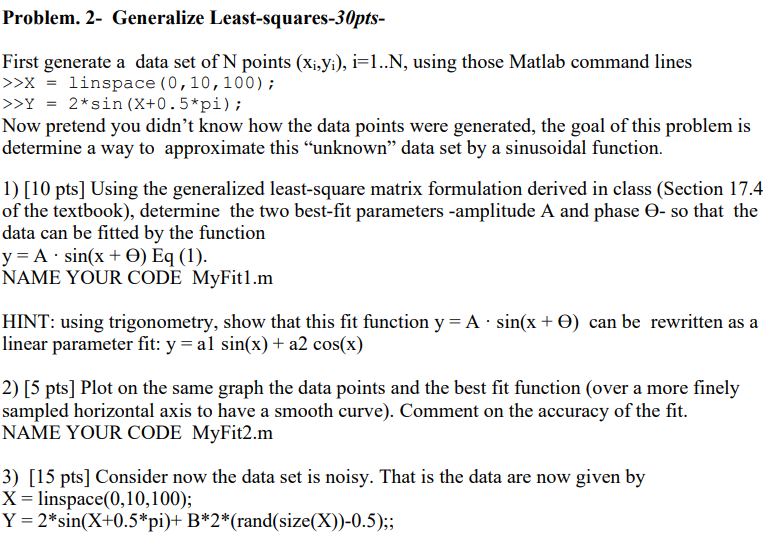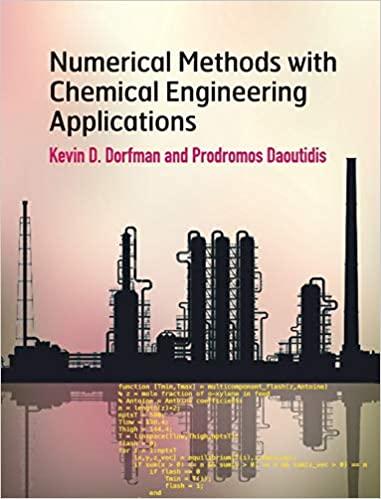Answered step by step
Verified Expert Solution
Question
1 Approved Answer
Problem. 2- Generalize Least-squares-30pts- First generate a data set of N points (xi,yi), i=1..N, using those Matlab command lines >>X = linspace (0, 10,


Problem. 2- Generalize Least-squares-30pts- First generate a data set of N points (xi,yi), i=1..N, using those Matlab command lines >>X = linspace (0, 10, 100); >>Y = 2*sin (X+0.5*pi); Now pretend you didn't know how the data points were generated, the goal of this problem is determine a way to approximate this "unknown" data set by a sinusoidal function. 1) [10 pts] Using the generalized least-square matrix formulation derived in class (Section 17.4 of the textbook), determine the two best-fit parameters -amplitude A and phase - so that the data can be fitted by the function y = A sin(x + 0) Eq (1). NAME YOUR CODE MyFit1.m HINT: using trigonometry, show that this fit function y = A sin(x + O) can be rewritten as a linear parameter fit: y = al sin(x) + a2 cos(x) 2) [5 pts] Plot on the same graph the data points and the best fit function (over a more finely sampled horizontal axis to have a smooth curve). Comment on the accuracy of the fit. NAME YOUR CODE MyFit2.m 3) [15 pts] Consider now the data set is noisy. That is the data are now given by X =linspace(0,10,100); Y = 2* sin(X+0.5*pi)+ B*2*(rand(size(X))-0.5);; *Repeat Questions 1)&2) when the noise amplitude B varies successively from 0 to 3 in 0.1 increment (Use a For loop to display the following cases). Plot the variations of the percentage true error for BOTH the fit amplitude A and phase you computed vs. the values of B. (use the true values of amplitude Atrue-2 and phase offset true=1/2 from Part 1 to define the percentage true error). *For what values of noise amplitude B is the original sinusoidal fit given in Eq. (1) no longer relevant ? simply explain why? NAME YOUR CODE MyFit3.m
Step by Step Solution
There are 3 Steps involved in it
Step: 1

Get Instant Access to Expert-Tailored Solutions
See step-by-step solutions with expert insights and AI powered tools for academic success
Step: 2

Step: 3

Ace Your Homework with AI
Get the answers you need in no time with our AI-driven, step-by-step assistance
Get Started


